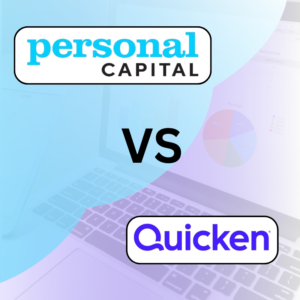When it comes to managing your credit, one of the most common questions is, is MyFICO accurate? As a credit monitoring tool that uses the same FICO scoring model trusted by over 90% of lenders, MyFICO is a top choice for individuals seeking reliable and precise credit information. In this post, we’ll explore how MyFICO compares to other tools, what real users and experts say about its accuracy, and whether it’s the right option for your credit monitoring needs.
Table of Contents
How MyFICO Calculates Credit Scores and Its Role in Accuracy
MyFICO is one of the most widely recognized platforms for credit score monitoring, providing scores based on the FICO scoring model. Understanding how MyFICO calculates these scores is essential to determining its accuracy and reliability for consumers.
The FICO Scoring Model
MyFICO uses the FICO scoring model, which analyzes data from your credit reports. The calculation is based on five major factors:
- Payment History (35%)
- Your record of on-time or late payments.
- Late payments, defaults, or bankruptcies can significantly impact your score.
- Amounts Owed (30%)
- The total amount of debt you owe and your credit utilization ratio.
- High credit utilization can lower your score.
- Length of Credit History (15%)
- The age of your credit accounts.
- Older accounts contribute positively, showing a longer track record of responsible borrowing.
- Credit Mix (10%)
- The variety of credit types you have, such as credit cards, mortgages, and loans.
- A diverse mix can improve your score.
- New Credit (10%)
- Recent applications or openings of credit accounts.
- Multiple recent inquiries may lower your score temporarily.
Sources of Data
MyFICO pulls data from the three major credit bureaus: Experian, TransUnion, and Equifax. Since lenders also rely on these bureaus, the scores from MyFICO closely align with those used in credit decisions, making them highly accurate.
Customization for Different Scoring Models
MyFICO offers industry-specific credit scores in addition to standard scores. For example, it provides scores tailored to auto loans, mortgages, and credit cards. These customizations can give users a more accurate representation of how lenders will view their creditworthiness for specific needs.
Accuracy and Limitations
While MyFICO is known for accuracy, its scores may differ slightly from those a lender uses due to timing or specific lender preferences. For instance:
- A lender might use a different version of the FICO model.
- Credit report updates may not be immediately reflected in your MyFICO score.
Despite these limitations, MyFICO remains one of the most accurate tools for monitoring your credit score because it uses the same methodology as lenders.
By understanding how MyFICO calculates credit scores, you can make informed decisions about using the platform and interpreting your score. Its methodology and alignment with lender practices make it a reliable option for monitoring and improving your financial health.
Comparing MyFICO Scores with Scores from Other Credit Monitoring Services
When it comes to credit score monitoring, many platforms claim to offer accurate information. However, the question remains: is MyFICO accurate compared to its competitors like Credit Karma, Experian, or Equifax? Understanding the differences between MyFICO and other credit monitoring services is crucial in choosing the right tool for managing your financial health.
How MyFICO Scores Are Calculated
MyFICO stands out because it uses the official FICO scoring model, which is the same model most lenders use when making credit decisions. These scores are based on data sourced directly from the three major credit bureaus: Experian, Equifax, and TransUnion. Since FICO scores are considered the gold standard in lending, MyFICO provides the most relevant and actionable information for consumers.
Credit Monitoring Services and Their Scoring Models
Many free credit monitoring services, such as Credit Karma and WalletHub, use the VantageScore model instead of FICO. If you’re considering Experian as part of your credit monitoring strategy, here’s how to complete your Experian sign-up infive easy steps.”
- VantageScore
- Created by the three credit bureaus.
- Designed as an alternative to FICO.
- Often used for educational purposes rather than lending decisions.
- FICO Score
- Developed by Fair Isaac Corporation.
- Widely used by over 90% of top lenders.
- MyFICO provides specific FICO versions tailored for auto loans, mortgages, and credit cards.
The distinction lies in how lenders perceive these scores. While VantageScores can provide a general idea of your credit health, FICO scores are more commonly referenced during loan approvals.
Key Differences Between MyFICO and Other Platforms
- Accuracy for Lending Decisions
If you’re applying for a loan, MyFICO is more likely to align with the score your lender will see. Free services like Credit Karma might show a different score because they use the VantageScore model. - Custom Scoring Models
MyFICO offers industry-specific scores tailored to specific lending scenarios, while most other platforms provide a single, generalized score. - Data Sources
Both MyFICO and other services pull data from the major credit bureaus, but the scoring methodology makes the difference. - Cost vs. Free Options
MyFICO is a paid service, while platforms like Credit Karma are free. The higher cost of MyFICO reflects its use of FICO scores, the same ones lenders rely on.
For a deeper understanding of credit score accuracy and how various models compare, you might find this article about credit score insightful.
Is MyFICO Accurate Compared to Competitors?
The answer depends on your needs. For those looking to improve their financial health and track their credit score over time, free services may suffice. However, if you’re preparing for a mortgage, car loan, or other major financial decisions, MyFICO is the more accurate and reliable choice. Its use of FICO scores ensures that you’re seeing the same metrics lenders use.
When to Use MyFICO Over Other Platforms
- For Major Financial Decisions
If you need a score that aligns closely with what lenders see, MyFICO is the best option. - When You Want Detailed Insights
MyFICO provides customized scores for different loan types and a breakdown of factors influencing your score. - If Accuracy Matters
If you’ve ever asked, is MyFICO accurate? you’ll find that its alignment with lender-grade data makes it more reliable than free services.

Final Thoughts
Comparing MyFICO with other credit monitoring services highlights its unique advantages. While free platforms like Credit Karma or WalletHub are helpful for casual monitoring, MyFICO offers unmatched accuracy for serious financial planning. Its reliance on the FICO scoring model ensures you’re getting the most relevant and actionable insights, making it a top choice for consumers seeking accurate credit information.
Real-World Accuracy of MyFICO Scores: What Users Experience
For anyone monitoring their credit, a common question is, is MyFICO accurate in real-world scenarios? While MyFICO is widely recognized for its reliability, hearing about real-world experiences from users provides valuable insights into how closely its scores align with those used by lenders.
MyFICO stands out because it uses the official FICO scoring model, which is relied upon by over 90% of lenders in the U.S. It pulls data from all three major credit bureaus—Experian, Equifax, and TransUnion—to provide a comprehensive credit score. This makes MyFICO one of the most reliable tools for predicting how lenders might view your creditworthiness. Users frequently report that MyFICO scores closely match those pulled by lenders during important financial transactions, such as mortgage applications, auto loans, and credit card approvals.
When it comes to mortgages, many users have shared that their MyFICO scores were almost identical to the ones their lenders used during the loan approval process. This accuracy gives borrowers confidence, knowing what to expect when they apply. Similarly, for auto loans, MyFICO’s tailored industry-specific scores have proven highly accurate, as they align with the exact criteria auto lenders often rely on. For credit card applications, users frequently note that the MyFICO score they see matches the score reviewed by credit card issuers, reducing surprises and uncertainty.
Despite its accuracy, some minor variances can occur between the scores displayed on MyFICO and those pulled by lenders. These differences can often be attributed to several factors. First, lenders may use a different version of the FICO scoring model, as there are various versions tailored to specific industries or preferences. Second, the timing of credit updates can play a role. Since MyFICO updates scores periodically, a lender might pull your credit at a different point in time, leading to slight discrepancies. Finally, some lenders apply their own criteria beyond the FICO score, which may influence their final decisions.
Users consistently praise MyFICO for its accuracy compared to free alternatives. Many share real-world examples, such as, “When I applied for a mortgage, my lender pulled the exact same score that I saw on MyFICO. It gave me peace of mind knowing what to expect.” Another user mentioned, “I used MyFICO to prepare for an auto loan, and their tailored score was spot-on with what the dealer used.” These testimonials reflect the platform’s reliability, especially for those planning significant financial decisions.
Unlike free credit monitoring services like Credit Karma, which often use the VantageScore model, MyFICO provides scores based on the official FICO model. While free tools are great for general monitoring, they lack the precision needed for serious financial planning. MyFICO’s alignment with lender-used scoring models makes it the better choice when accuracy is essential.
Situations Where MyFICO Scores May Differ from Lender Assessments
If you’re asking, is MyFICO accurate in every situation? it’s important to understand that MyFICO scores may sometimes differ from those used by lenders. These differences often arise from variations in scoring models, the timing of updates, and the unique criteria lenders apply when evaluating creditworthiness. These discrepancies don’t indicate inaccuracies on MyFICO’s part but instead highlight the nuances in how credit scores are used in real-world lending scenarios.
Different FICO Models
One significant factor is the use of different FICO models. MyFICO provides access to various versions of FICO scores, including general-purpose and industry-specific models. Lenders, however, may rely on a specific version tailored to their needs. For example, mortgage lenders frequently use older models like FICO Score 2 or 4, while auto lenders prefer FICO Auto Score 8 or 9. Similarly, credit card issuers might rely on FICO Bankcard Score models. If the FICO version your lender uses differs from the one shown on MyFICO, the scores may not align perfectly. This doesn’t mean MyFICO is inaccurate but rather that lenders choose models that suit their lending criteria.
Timing of Updates
Another reason MyFICO scores might differ from a lender’s is the timing of updates. MyFICO updates your scores periodically based on the latest data from Experian, Equifax, and TransUnion. However, lenders may pull your credit report immediately after a financial event, such as a recent payment, a credit inquiry, or a new account opening. These activities might not yet be reflected in your MyFICO score, causing temporary differences. For instance, if you recently paid off a credit card balance, your lender’s score might be higher than what MyFICO shows if their credit check occurs before your next MyFICO update.
Customized Lending Criteria
In addition to credit scores, lenders often consider a range of other factors, such as income, debt-to-income ratio, and the size of a down payment. While MyFICO focuses solely on providing accurate credit scores, lenders integrate these additional variables into their decision-making process. For example, a borrower with a lower score might still be approved for a loan if they have a significant down payment or an excellent debt-to-income ratio. Conversely, someone with a higher score might face stricter terms if their income doesn’t meet a lender’s threshold. These added factors can create the impression of a score discrepancy, even when MyFICO’s data is accurate.
By understanding these factors, you can better interpret your MyFICO score and how it relates to what lenders see. While slight differences may arise, MyFICO remains a reliable tool for gauging your overall creditworthiness.
Customer Insights: Is MyFICO Accurate According to Reviews?
When asking, is MyFICO accurate, customer reviews provide valuable insights into its reliability. Users often discuss its alignment with lender scores, the level of detail it offers, and the overall value for its cost. These real-world experiences shed light on both the strengths and limitations of MyFICO as a credit monitoring tool.
Alignment with Lender Scores
A common highlight in reviews is how closely MyFICO scores match those used by lenders. Customers preparing for mortgages, car loans, or credit card applications frequently report that their MyFICO scores align almost perfectly with those their lenders pull. For example, many users mention that MyFICO provided peace of mind by showing accurate scores when making major financial decisions. Compared to free services like Credit Karma, which use VantageScore, MyFICO’s FICO-based scores stand out as more reliable for lending purposes.
Key customer feedback:
- “My mortgage lender’s score was identical to what I saw on MyFICO, which made the process stress-free.”
- “The auto dealer used FICO Auto Score 8, and MyFICO showed me the exact same score before I applied.”
Transparency and Detailed Information
Another major point in reviews is MyFICO’s detailed breakdown of credit factors, such as payment history and credit utilization. Customers often praise the platform for its transparency, helping them understand what drives their scores and how to improve. Many users highlight that MyFICO goes beyond just showing a number by offering actionable insights into their credit health. This level of detail is a key advantage over free tools, which tend to lack in-depth information.
Limitations Mentioned in Reviews
Some customers mention minor drawbacks, particularly regarding timing. MyFICO updates scores periodically, so recent changes like paying off debt or opening a new account might not immediately reflect in the score. Additionally, some users feel that the subscription cost is a barrier, especially when compared to free alternatives. However, most agree that the accuracy of MyFICO’s lender-grade scores makes it worth the expense.
Customer reviews confirm that MyFICO is a highly accurate and reliable credit monitoring tool. With its detailed insights and alignment with lender-used scores, it is an invaluable resource for those preparing for financial milestones.
How Reliable and Trustworthy is MyFICO Data for Credit Scores?
When it comes to monitoring credit, many wonder, is MyFICO accurate and trustworthy? MyFICO has earned a reputation for reliability due to its use of the official FICO scoring model, the same model relied upon by over 90% of top lenders in the U.S. Its scores are directly derived from data provided by the three major credit bureaus—Experian, Equifax, and TransUnion—ensuring a comprehensive and accurate picture of your credit health.
Why MyFICO Data is Reliable
MyFICO’s data is sourced directly from the three main credit bureaus, which are the foundation of credit reporting in the U.S. It calculates credit scores using the same FICO algorithms that lenders use to make decisions. This alignment with industry-standard practices ensures that the information you see on MyFICO is as close as possible to what a lender will see when they review your credit.
Key factors that enhance MyFICO’s reliability:
- Scores are updated as credit bureau data changes, reflecting your most current financial activity.
- MyFICO offers multiple FICO versions, including industry-specific scores for mortgages, auto loans, and credit cards, providing users with tailored insights.
How Trustworthy is MyFICO?
Trustworthiness often comes down to data security and transparency, and MyFICO excels in both areas. The platform uses robust encryption protocols to protect sensitive user data, ensuring that your financial information remains secure. Additionally, MyFICO is transparent about how it calculates scores, providing detailed breakdowns of the factors influencing your score, such as payment history, credit utilization, and recent credit inquiries. This transparency allows users to understand and trust the scores they see.
Limitations in Trustworthiness
While MyFICO is reliable, some users have noted slight discrepancies due to timing. Because scores are updated periodically, a recent credit event—like paying off a loan or a new inquiry—might not immediately reflect in your score. However, this is a timing issue rather than a flaw in the accuracy of MyFICO’s data. Additionally, the cost of the service has been cited as a drawback, particularly when compared to free credit monitoring tools. However, the precision and reliability of MyFICO’s lender-grade scores often outweigh this concern for most users.
MyFICO’s reliance on lender-grade algorithms and its robust security measures make it a highly reliable and trustworthy platform for monitoring credit scores. For those seeking accurate and actionable credit insights, MyFICO remains a top choice.
The Impact of Update Frequency on MyFICO’s Accuracy
One important factor when evaluating is MyFICO accurate is its update frequency. MyFICO relies on data from the three major credit bureaus—Experian, Equifax, and TransUnion—to update your credit scores. These updates reflect changes such as payments, credit inquiries, and new accounts, but their timing can vary depending on when creditors report to the bureaus. While MyFICO strives to provide the most recent information, its accuracy can be influenced by these external reporting schedules.
How MyFICO Updates Credit Scores
MyFICO updates your scores periodically based on new data provided by the credit bureaus. Most creditors report updates monthly, but this timeline isn’t consistent across all institutions. For instance, some creditors might report payments or account changes less frequently. MyFICO reflects the latest updates as soon as they are available, ensuring that its scores are as accurate as possible under the circumstances.
Temporary Discrepancies Due to Timing
Occasionally, the timing of updates can cause small discrepancies between the scores shown on MyFICO and those used by lenders. For example, if you recently paid off a significant debt, the change might not yet appear in your MyFICO score if the creditor hasn’t reported it. However, these gaps are temporary and do not undermine the overall accuracy of MyFICO’s data. For those asking, is MyFICO accurate, the platform remains highly dependable despite these timing differences.
Why Update Frequency is Critical
Frequent updates are vital for users who need precise credit information, particularly when preparing for a loan or major purchase. MyFICO’s reliance on timely bureau data ensures that its scores are current and reflect your most recent financial activity. While it cannot provide real-time updates due to external constraints, MyFICO’s scores remain among the most accurate for tracking credit health over time.
Limitations of MyFICO’s Accuracy: What You Should Know
While MyFICO is widely recognized for its accuracy, it’s important to acknowledge certain limitations. For anyone asking, is MyFICO accurate, understanding these factors will help set realistic expectations about its performance. These limitations are primarily related to timing, scoring models, and external lender criteria.
Timing of Credit Report Updates
One limitation of MyFICO’s accuracy stems from the timing of credit report updates. MyFICO relies on data provided by the three major credit bureaus—Experian, Equifax, and TransUnion—to calculate your credit score. However, creditors don’t always report changes in real-time. For example, if you’ve recently paid off a large debt or opened a new account, that activity might not yet reflect in your MyFICO score if the creditor hasn’t updated the bureaus. This can create temporary discrepancies between what MyFICO shows and what lenders see.
Variations in Scoring Models
Another limitation is the variety of FICO scoring models used by lenders. MyFICO provides access to multiple FICO versions, including industry-specific scores for mortgages, auto loans, and credit cards. However, if a lender uses a different version than the one displayed on your MyFICO account, the scores might not align perfectly. This doesn’t mean MyFICO is inaccurate; rather, it reflects the tailored needs of different industries.
Influence of Lender-Specific Criteria
Lenders often use more than just your credit score to make decisions. Factors such as your income, debt-to-income ratio, and down payment size are commonly considered. While MyFICO focuses solely on providing accurate scores, lenders may weigh these additional criteria heavily, which can lead to decisions that seem inconsistent with your MyFICO score.
By understanding these limitations, you can better interpret your MyFICO score and its role in your financial planning. While there are occasional gaps due to timing and lender-specific factors, MyFICO remains one of the most accurate and reliable tools for credit monitoring.
Comparing the Value of MyFICO with Free Credit Monitoring Tools
For those wondering, is MyFICO accurate, it’s essential to compare its value against free credit monitoring tools like Credit Karma or WalletHub. While free tools offer basic credit insights, MyFICO provides unique advantages, especially for individuals who need highly accurate, lender-grade information.
The Accuracy of MyFICO vs. Free Tools
MyFICO uses the official FICO scoring model, the same one trusted by over 90% of lenders. Free tools, on the other hand, often rely on the VantageScore model, which is more generalized and not commonly used in lending decisions. Many users report discrepancies between scores from free tools and those lenders use, reinforcing the question, is MyFICO accurate, with a strong “yes” for those preparing for mortgages, auto loans, or other significant financial decisions.
Features and Insights
MyFICO offers detailed insights, including multiple FICO score versions tailored to specific industries, a comprehensive breakdown of credit factors, and simulations to predict how financial changes will impact your score. In contrast, free tools provide a more basic overview and lack the tailored features of MyFICO. For users who need actionable, precise credit data, MyFICO stands out as the superior option.
Cost vs. Convenience
While MyFICO is a paid service, its value lies in its unmatched accuracy and depth of information. Free tools are helpful for casual credit monitoring but may not provide the level of reliability and insight needed for critical financial decisions. MyFICO’s cost is justified for those who prioritize lender-grade accuracy and comprehensive data, while free tools are better suited for general use.
Expert Opinions on “is MyFICO Accurate”
For anyone wondering, is MyFICO accurate, expert opinions provide valuable insights into the platform’s reliability. Financial professionals consistently highlight MyFICO’s use of the official FICO scoring model, the same one trusted by over 90% of lenders, as a key factor in its accuracy. This alignment with industry standards makes MyFICO one of the most dependable tools for credit score monitoring.
What Experts Say About MyFICO’s Accuracy
Experts often emphasize that MyFICO’s scores are more reliable than those provided by free credit monitoring tools. Free platforms typically use the VantageScore model, which can differ significantly from FICO scores. Financial advisors note that individuals using MyFICO see scores closely aligned with what lenders review for mortgages, auto loans, and credit cards. For those asking is MyFICO accurate, experts agree that it’s the best choice for users who need precise and actionable credit data.
Why Professionals Recommend MyFICO
Professionals also recommend MyFICO for its detailed credit insights. The platform offers various FICO versions tailored to specific lending scenarios, providing a more nuanced understanding of your creditworthiness. Experts often suggest MyFICO to clients preparing for major financial decisions, as its lender-grade scores reduce surprises during the loan application process. Additionally, the platform’s transparency in explaining how scores are calculated allows users to take meaningful steps to improve their credit health.
By aligning with the exact scoring models lenders use and offering detailed, transparent information, MyFICO has earned the trust of financial experts as a reliable and accurate credit monitoring tool.
Final Verdict: Is MyFICO Accurate Enough for Your Credit Monitoring Needs?
When it comes to the question, is MyFICO accurate enough for your credit monitoring needs, the answer largely depends on what you’re looking for in a credit monitoring tool. MyFICO’s greatest strength lies in its use of the official FICO scoring model, the same one trusted by over 90% of lenders. This makes it one of the most reliable platforms for individuals who need precise, lender-grade credit scores.
For anyone preparing for a mortgage, auto loan, or any major financial decision, MyFICO stands out as a dependable resource. Users consistently report that the scores provided by MyFICO closely align with those pulled by lenders. While free tools like Credit Karma offer basic credit insights, they often rely on VantageScore, which isn’t as widely used in lending decisions. If you’re asking is MyFICO accurate compared to free alternatives, its alignment with lender-used scoring models makes it the clear winner.
In addition to its accuracy, MyFICO offers detailed insights and industry-specific scores, providing a deeper understanding of your credit profile. This transparency allows users to make informed decisions and take actionable steps to improve their financial health. While the platform’s subscription cost may be a drawback for some, its reliability and alignment with real-world lending practices make it a worthwhile investment for those who value precision.

In conclusion, MyFICO is accurate, reliable, and highly beneficial for users with serious credit monitoring needs. Whether you’re applying for a loan or simply want a trustworthy source for tracking your credit health, MyFICO delivers unmatched accuracy and insights that go beyond what free tools can offer. It remains one of the best choices for anyone looking to stay informed and confident about their creditworthiness.





